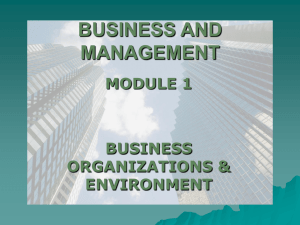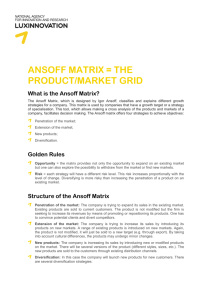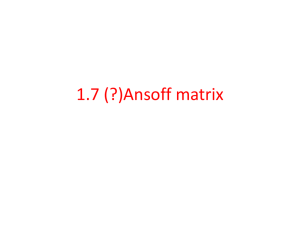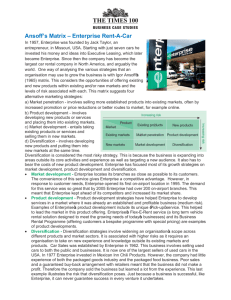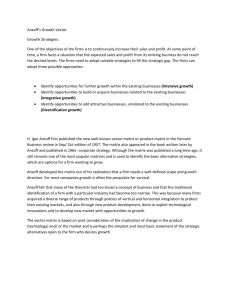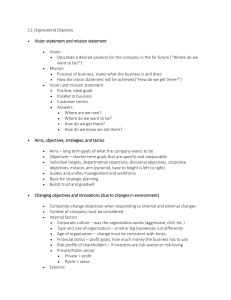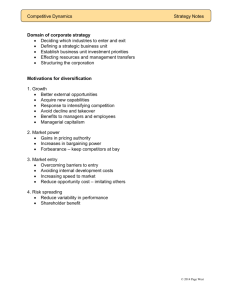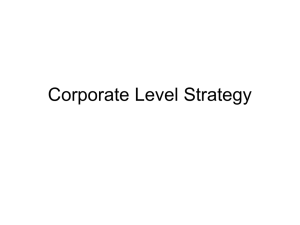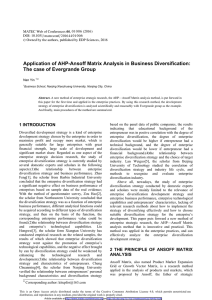03a. Product Development
advertisement
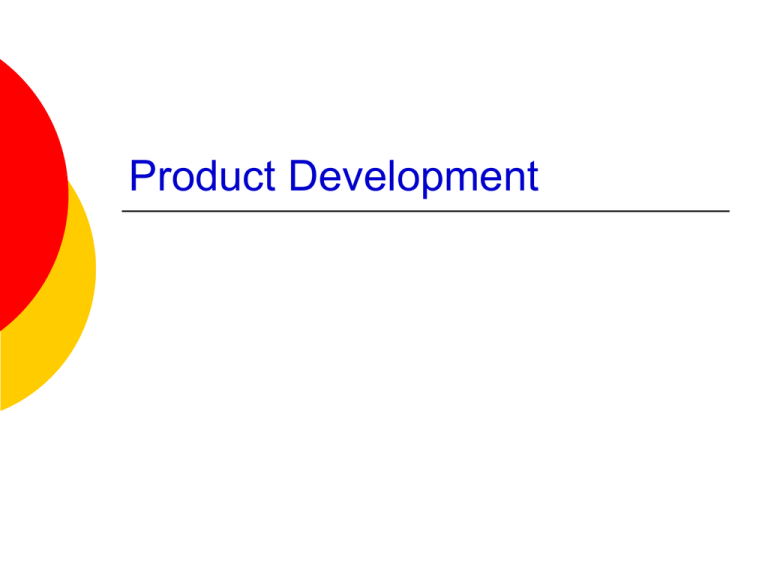
Product Development Ansoff’s Matrix – Planning for Growth This well known marketing tool was first published in the Harvard Business Review (1957) in an article called 'Strategies for Diversification'. It is used by marketers who have objectives for growth. Ansoff's matrix offers strategic choices to achieve the objectives. There are four main strategies for selection. Marketing Teacher Ltd 2000 - 2009 Ansoff's Product/Market Matrix Market Penetration Here we market our existing products to our existing customers. This means increasing our revenue by, for example, promoting the product, repositioning the brand, and so on. The product is not altered and we do not seek any new customers. Not just for kids! Market Development Here we market our existing product range in a new market. This means that the product remains the same, but it is marketed to a new audience. Ex. Exporting the product to another country marketing it in a new region Expanding or defining a new TM Expanded to countries all over the world Product Development This is a new product to be marketed to our existing customers. we develop and innovate new products to replace existing ones. Such products are then marketed to our existing customers. Example: auto makers, where existing models are updated or replaced, and then marketed to existing customers. Diversification This is where we market completely new products to new customers. There are two types of diversification: Related Diversification: we remain in a market or industry with which we are familiar. (i.e. same type of good) Unrelated Diversification: we have no previous industry or market experience. (i.e. different type of good) Diversification Examples Developed a men’s line of yoga and activewear Started w/ food items, expanded to paper products, housewares and even banking! Manufacturer of cigarettes, bought Kraft Foods in 1988 Case Study Colorado Ricardo Mountain Bikes In groups of 3, read the case and determine specific strategies that Ricardo can use to increase sales of his mountain bikes. Stages of Product Development Idea Generation Idea Screening Concept Development Market Strategy – Feasibility Study – Product Design Test Marketing Market Entry The Stages of Product Development 1. Idea Generation what NEW product would consumers WANT or how can we make an EXISTING product BETTER 2. Idea Screening Not all ideas, at first, are good ones 3. Concept Development Create a prototype = sample of product 4. Market Strategy Figuring out who the TM is (demo, geo, psychographics, to put together a marketing plan to implement the strategy) The Stages of Product Development 5. Feasibility Study Can we advertise, promote, distribute, transport, store, package, make, sell…this product? Will people buy it? Will we make money from it? 6. Product Design What does our TM like? Colour, features, material, traditional, trendy 7. Test Marketing Give your product to your TM to ‘test’ out TM can fill out a survey to give you feedback 8. Market Entry Your product/service enters the product life cycle (PLC) (introduction stage)
